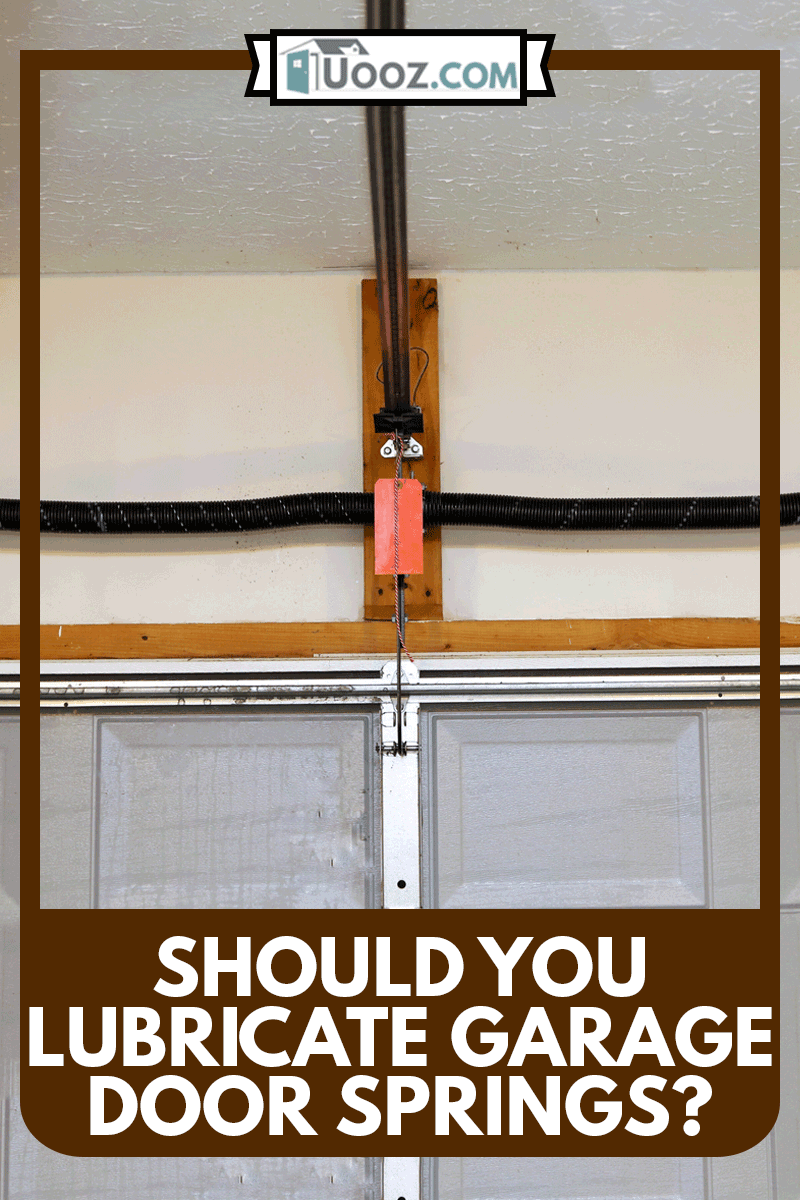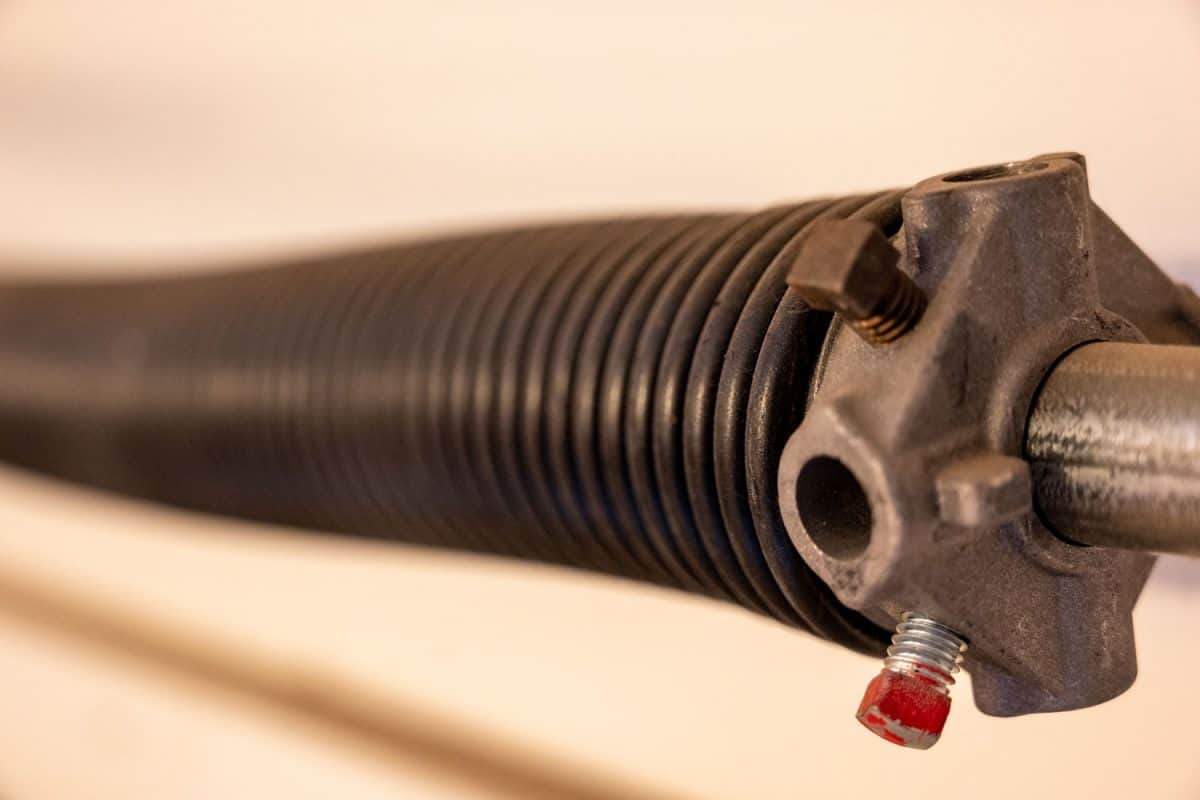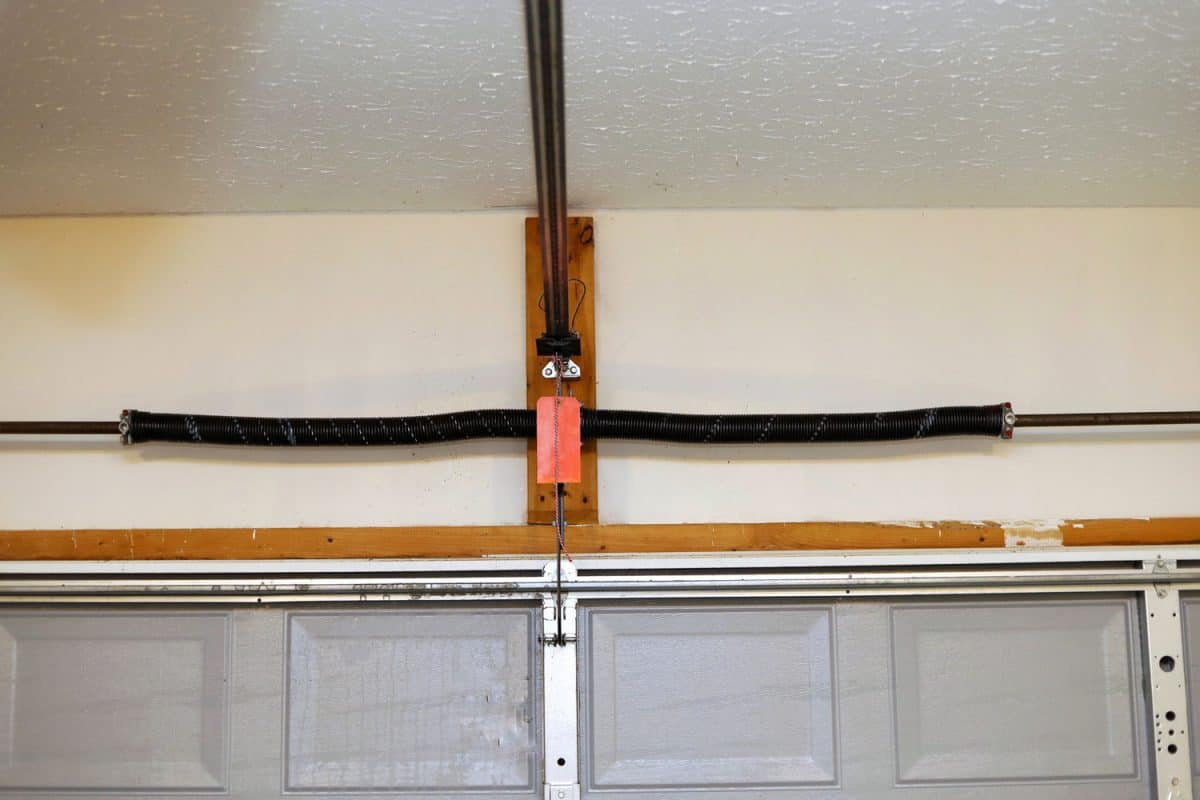Like water heaters or refrigerators, garage doors are one of those things most people don’t notice until something goes wrong. However, some handymen say there’s an easy way to extend the life of this unit: lubricate the garage door’s springs. So, does this simple strategy truly enhance the longevity of your garage door? If you’re curious about spiffing up your garage door springs, be sure to read the research we’ve compiled on this topic.
If you have torsion springs in your garage, you should lubricate them a few times per year. This simple technique should keep your garage squeak-free and in good working order for years. However, if your garage has extension springs that have been coated or powdered, you don’t need to lubricate them. When in doubt, you should ask your manufacturer whether its garage door springs are fit for lubrication.
If you’ve never given a thought to greasing your garage springs before, chances are you’ve got more questions about proper maintenance. Don’t worry; the info in this post should help you understand how to keep your springs squeaky clean...without the squeaks!

Should You Lubricate Garage Door Springs?

Most garage door experts recommend spraying torsion springs with lubricant to keep them in good working order. Unlike extension springs, torsion springs use “torque” to pull your door up and down. Since the coils are constantly rubbing against each other, they produce a lot of noise and friction. Adding a little lubricant throughout the year not only reduces the “squeaky” sounds you may hear it also protects against rust.
If you have extension springs in your garage, there’s no need to lubricate them. After all, these springs work by “extending,” so there’s no way lubrication will “reduce friction.”
FYI: There are a few torsion spring models that have a powder-coating on the inside and outside. These torsion springs don’t require as much TLC as oil-tempered or galvanized units. If you have powder-coated torsion springs, you should contact the manufacturer to figure out approved cleaning strategies.
If you’re still confused about whether to lubricate your garage springs, be sure to listen to this professional video explanation:
How Often Should Garage Door Springs Be Lubricated?

There’s no set schedule for lubricating garage door springs, but most home experts recommend once or twice per year.
Of course, you could use your garage’s “noise level” to gauge when it may be a good time for greasing. If you notice your garage door is extra squeaky, then you should break out your lubricant to clear the noise. After greasing the springs, run your garage a few times to fully incorporate the lubricant.
If you still notice excessive noise a few days post-greasing, you should call a garage door expert for a more thorough diagnosis.
How Do You Lubricate Garage Door Springs?
Before you spray your torsion springs, be sure to protect yourself with a pair of safety glasses! This is especially true if you’re working with an aerosol spray can that could splash back potentially irritating chemicals.
Find out more on this Amazon link.
Once you’ve got your safety glasses on, you should spray your lubricant across and on top of your torsion spring. Usually, one coating is enough to keep your spring in good working order.
Next, you could open and shut your door to distribute the oil. Just don’t expect all of the oil to work into your spring the first time you open and close it. It may take a few times for the grease to work its way inside and significantly reduce noise.
For a video explanation of how to lubricate a garage door spring, be sure to watch this YouTube explanation:
If you’d prefer to use a drip oil rather than a white lithium spray, then be sure to watch this equally helpful video:
While you’re lubricating your garage door, you should disconnect it from the motor so you can manually spray each pivot point as you move it. Please check out our previous post on “How To Close A Garage Door Manually” for assistance.
What Is The Best Lubricant For Garage Door Springs?
Most garage door experts recommend using white lithium or silicone spray on your garage door springs. Both of these products leave a thicker coat of grease that will stick to your springs. White lithium and silicone will cling to your garage door’s springs, thus ensuring they will last a long time with no risk of dripping on your garage floor.
Find out more on this Amazon link.
Can You Use WD-40 On Garage Door Springs?
Garage door experts never recommend using WD-40 on your garage door spring. Unlike white lithium or silicone spray, WD-40 is a degreaser rather than a lubricant. The only reason WD-40 appears to lubricate your springs is that it helps clean them; it’s not because WD-40 provides much-needed lubrication. In fact, if you use WD-40 too often, it could decrease the longevity of your garage door springs.
While WD-40 has many valuable applications, you should not use it on your garage door’s springs. The only place you could use WD-40 is to clean your garage door’s tracks and chain. Just be sure to wipe off your WD-40 with a soft rag.
How Do You Maintain Garage Door Springs?
The best way to maintain your garage door’s torsion springs is to lubricate them about once or twice per year. It would also help if you lubricated the following areas of your garage door:
- Hinges
- Rollers
- Pulleys
However, you shouldn’t lubricate your garage door’s chains. Typically, these chains already have a waxy coating, so there’s no point wasting your grease on them. You should check the manufacturer’s cleaning instructions for more specific guidance.
Also, please don’t use lubricant on your garage door’s track. Homeowners often mistakenly fill their tracks with silicone or white lithium spray. Unfortunately, this could attract dust and grime, which could hurt the longevity of your garage door.
Instead of spraying your garage door’s tracks with lubricant, it’s better to give it a thorough clean with a damp towel. You could also spray these tracks with a bit of WD-40 and wipe them off with your trusty towel.
Find out more on this Amazon link.
By the way, if you’re living in a hurricane-prone area, you may be wondering whether it’s better to crack your garage door during a storm. For valuable maintenance and safety information, be sure to read our post, “Should You Crack Your Garage Door During A Hurricane?”
To find more DIY tips for maintaining your garage door, be sure to watch this YouTube video:
How Long Does A Garage Door Spring Last?

Every manufacturer will have a different estimate for how long its garage door springs last. However, most springs nowadays should be able to handle about 10,000 cycles. So, if you use your garage twice per day, you can expect these springs to last about 13 years.
Understandably, the more you use your garage springs, the quicker they will show signs of wear-and-tear. While regular maintenance helps extend your garage door’s lifespan, you must consider your manufacturer’s average duration when choosing garage door springs.
Keep Your Springs Smooth With Regular Lubrication
While lubricating your garage door springs may not be a top priority, it can positively affect this unit. Just remember that you only have to lubricate torsion springs, not extension springs. Also, please be sure to avoid using WD-40 if you’re going to spray your garage door’s springs. With just a few minutes of effort per year, you’d be amazed at how much smoother your well-greased garage door runs.



